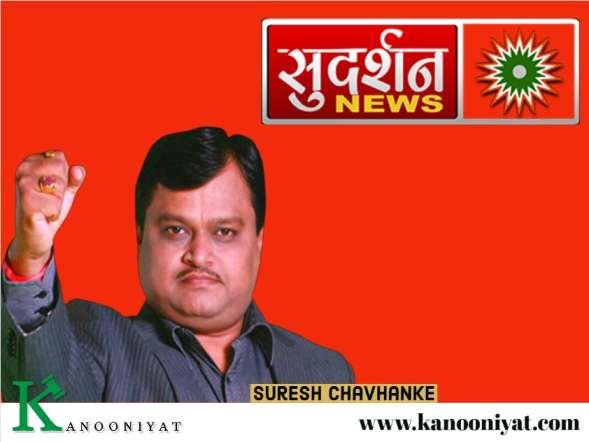An intervention application has been filed in the Supreme Court by OpIndia.com, Indic Collective Trust and the UpWord Foundation stating that the standards adhered to by Sudarshan TV while telecasting the UPSC Jihad series was in consonance with “contemporary standard of religious reporting” prevalent over decades.
The petition states that there has been no action in the past against other instances media reportage ‘fanning communal passions.‘ The applicants add that the report has found 100 instances which should have been actioned against like how the Court had restrained Sudarshan TV from airing its show in the Court’s interim order in UPSC Jihad case.
Also Read: Justice Chandrachud Raises Objections On Sudarshan TV’s “UPSC Jihad” Show
The questions raised by the intervenors for the Court’s consideration are:
- Is a Constitutional Court, either under Articles 226 or 32, cloaked with the necessary jurisdiction to directly restrain content during the pendency of an examination by the appropriate State authority on the legality of the content under applicable laws?
- Assuming the appropriate State authority finds nothing objectionable with the content under the applicable law, does any statute or the Constitution itself permit Constitutional Courts to step into the shoes of the State to restrain the broadcast and consumption of such content?
- Given that the Supreme Court has recognized the fundamental right of the public to consume content, can a Constitutional Court fetter the broadcast of such content without considering the public’s right to consume?
- Is it constitutionally permissible for Constitutional Courts to judicially legislate a new species of impermissible speech, namely “Hate Speech”?
- What is the jurisprudence on “Hate Speech” in India and in other jurisdictions?
- Independent of the above questions and without prejudice to them, would it be fair and reasonable to lay down the law on hate speech based on a particular instance which forms the basis of the Writ Petition without considering the contemporary landscape on exercise of free speech which sheds light on the standards observed in current discourse in UPSC Jihad case?
The applicants in UPSC Jihad case also added,
“In the event of legal vacuum to deal with a particular situation, the Court may issue guidelines to provide absolution till such time as the Legislature acts to perform its role by enacting proper legislation to cover the field. Therefore, directions can be issued only in a situation where the will of the elected legislature has not yet been expressed.“
It was further stated,
“Conversely, it would be fair to presume that the impugned content is merely consistent with the standards set by mass media over the decades on religious reporting.“
“That this is the contemporary standard of religious reporting is evident from the fact that no authority has initiated any legal proceeding against any of these entities or authors for misrepresentation or fanning communal passions or demonising Indic communities and their ways of life which are clearly the subject of their reportage. Such being the case, the fifth Respondent (Sudarshan TV) would be justified in assuming that it was merely playing by the rules of reportage.”
The intervenors in UPSC Jihad state that law on free speech is and must remain impervious to sentiments being affected or hurt on the basis of the numerical strength of a particular community, “failing which the law would be patently communal and defeat the very object of fundamental freedoms of free speech and expression.”
Since the top Court is also seized of petitions seeking to lay down an authoritative ruling on hate speech in UPSC Jihad , the intervenors aver that:
“’Hate speech’ without clear metes and bounds could end up strengthening the hands of those who wish to prevent the truth from emerging or who wish to resist reform by alleging persecution and discrimination merely because certain facts are politically incorrect or do not fall within their worldview.”
Ultimately, the intervenors in UPSC Jihad case assert that the area of hate speech is best left to the legislature to work on.
It is pointed out, inter alia, that the Supreme Court in Jafar Imam Naqvi vs Election Commission of India, has clarified that directions can be issued “only when there has been a total vacuum in law, i.e. complete absence of active law to provide for the effective enforcement of a basic human right.“

